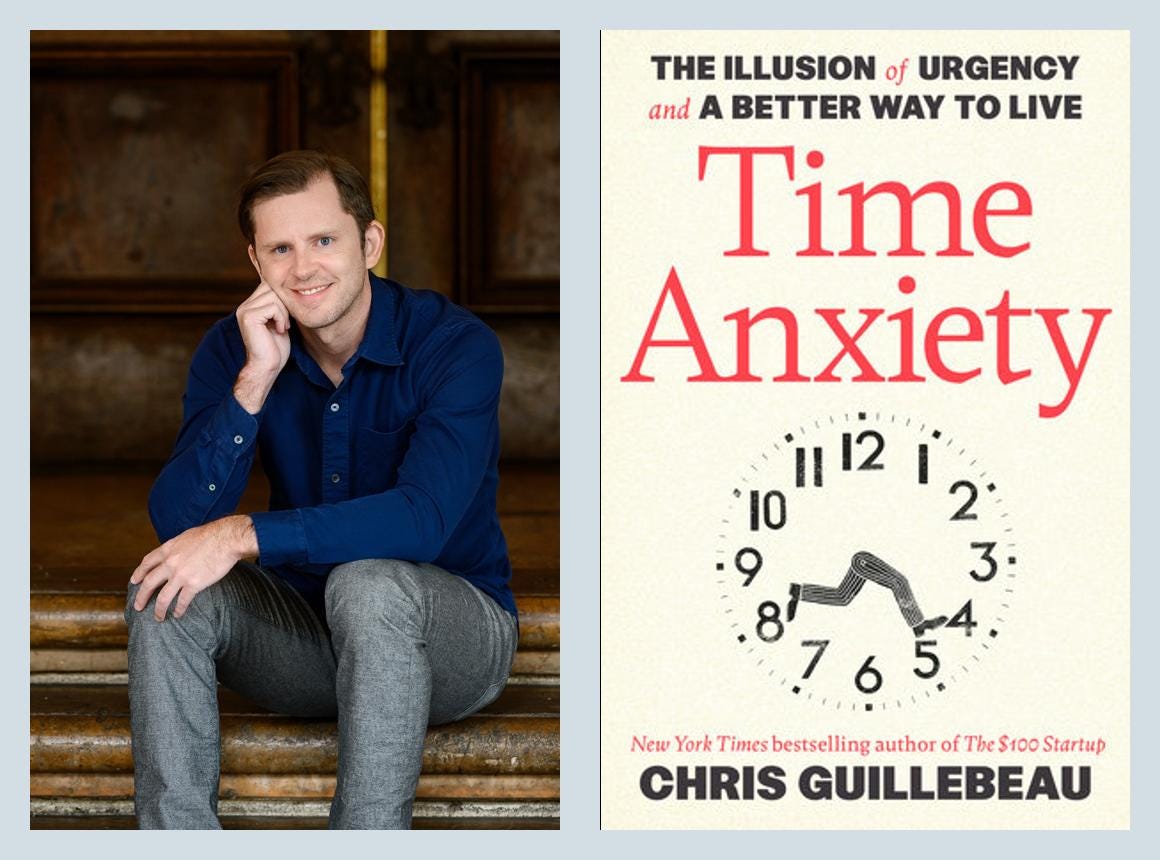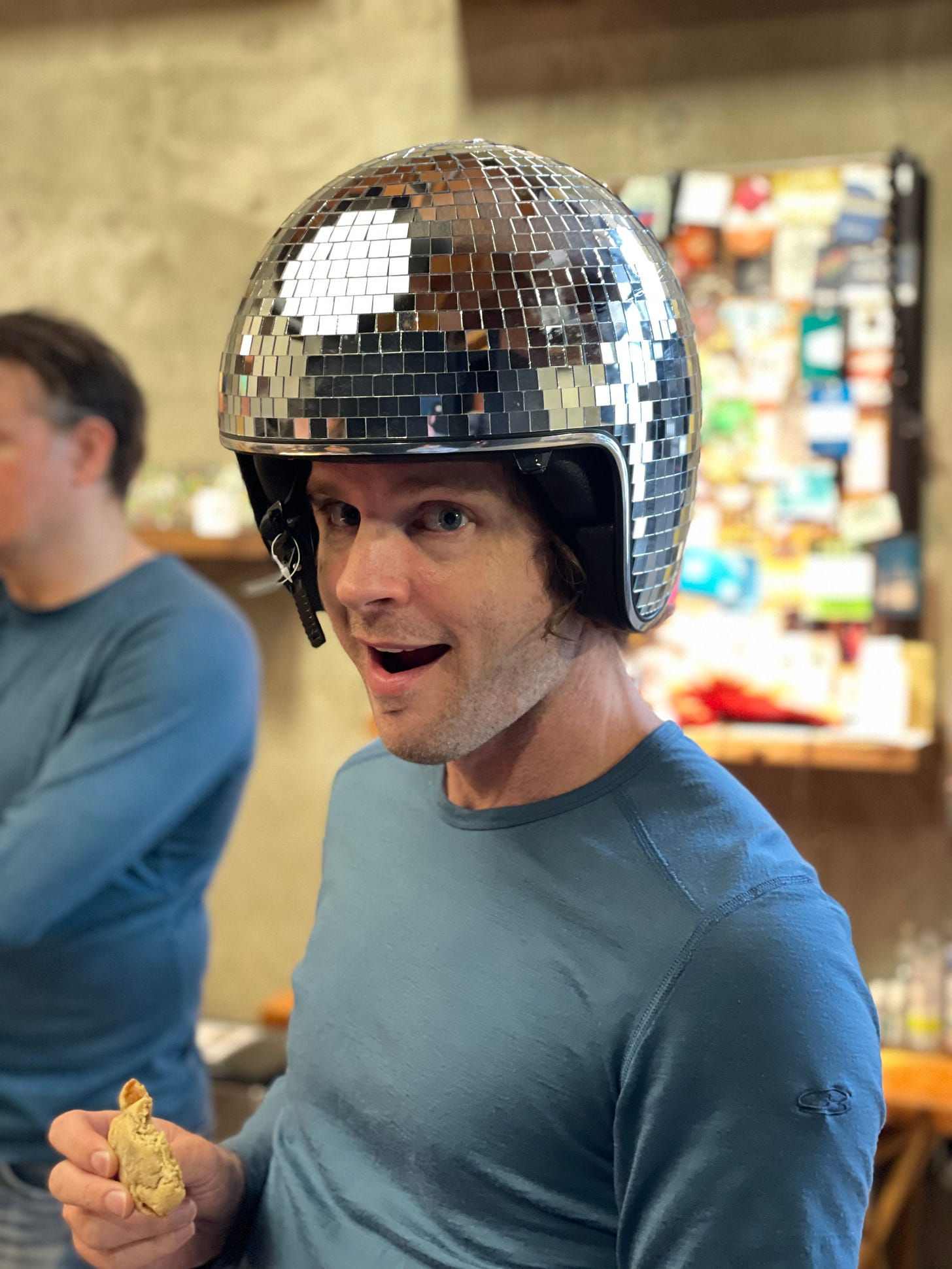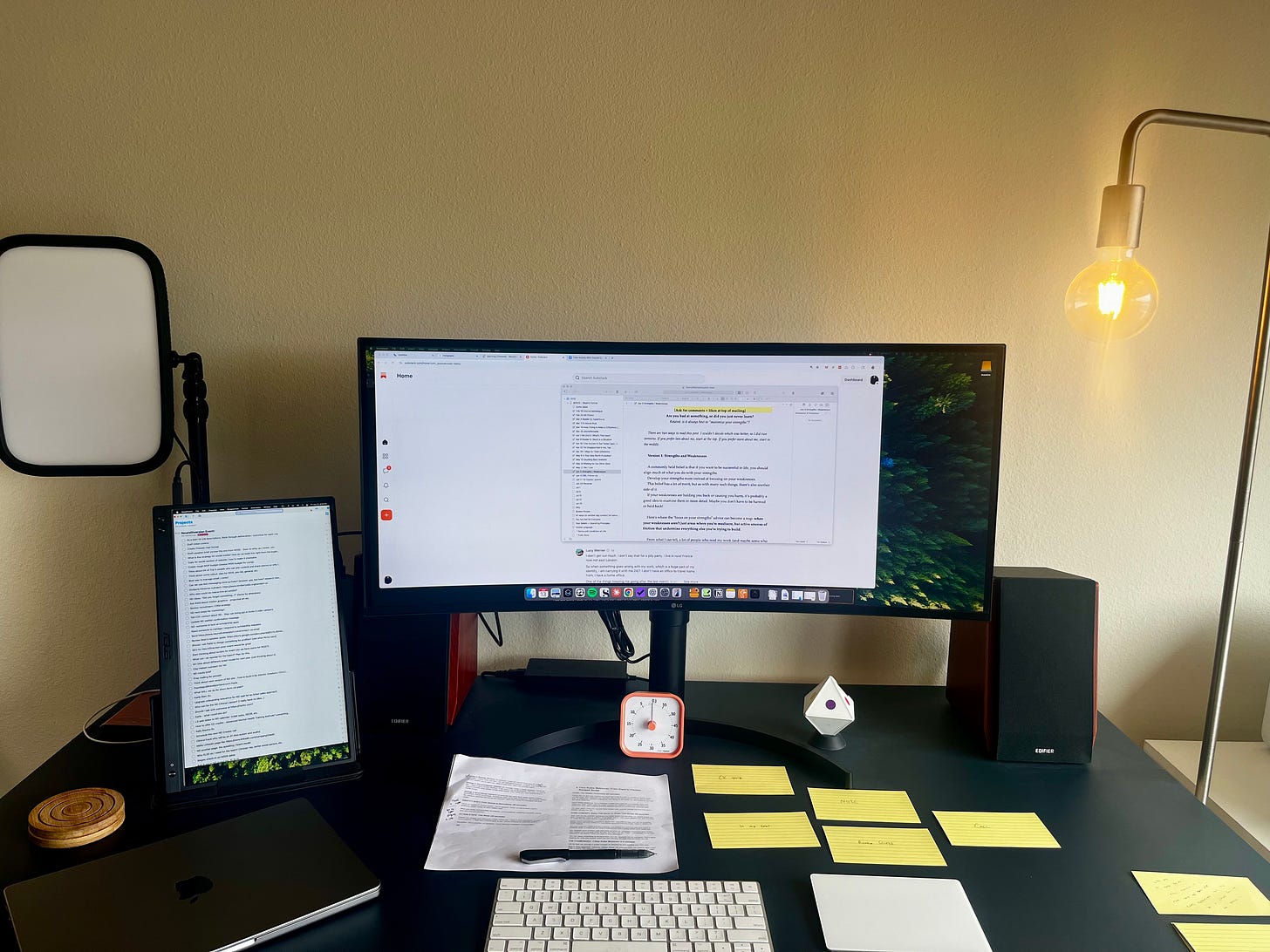21 Questions for Chris Guillebeau
The anti-hustle strategist on urgency, restlessness, and how to stop racing through your life.
Chris Guillebeau has built a career out of asking the questions most of us are too busy to consider. What does it mean to live a meaningful life? How do we pursue freedom, creativity, and purpose in a world that rewards urgency over intention? Whether he’s writing about unconventional entrepreneurship (The $100 Startup), personal reinvention (The Happiness of Pursuit), or building small armies of passionate change-makers (The Art of Non-Conformity), Chris challenges readers to rethink what’s possible—and to act on it.
In his latest book, Time Anxiety: The Illusion of Urgency and a Better Way to Live, Chris turns his attention to something we all struggle with but rarely acknowledge: our fractured, frantic relationship with time. Drawing on research, interviews, and hard-won insights, he unpacks the ways our sense of urgency distorts our priorities—and shows us how to reclaim a calmer, more intentional rhythm of life. The result is a guide not to time management, but to time liberation.
We invited Chris to take the Author Insider Questionnaire, our spin on the classic Proust Questionnaire. His answers are thoughtful, surprising, and full of the calm clarity that defines his work.
—Panio
21 Questions for Chris Guillebeau
1. I couldn’t have written my last book without… Three great editors! Through a twist of fate (it’s a long story…) I started working with Talia Krohn at Little, Brown Spark, but then moved back over to my friends at Crown. There I worked with Leah Trouwborst, who really crushed it and helped me develop a whole new writing style. Finally, Paul Whitlach stepped in when Leah took a leave of absence, and he was a great steward of getting the book across the finish line.
All three of them are true collaborators and the book is much better than it would have been on my own.
2. What’s the thing most people get wrong about being a writer? There’s a lot of misunderstanding about the world of publishing because no one is all that forthcoming with information, especially to newcomers who don’t know what to ask. Then you have people who share “insider” news or tactics that are often wrong or based on limited experience, which isn’t necessarily representative of how it is for everyone else.
3. What’s something you wish you’d started doing five years ago? Staking out a claim on a new-to-me platform. I’m not sure which one—maybe YouTube or TikTok. But we can only be in so many places at once, so I try not to have too much FOMO about “missed” opportunities.
4. Hemingway wrote standing up; Edith Wharton, lying down. What are your quirks? I can be compulsive, which has its drawbacks but is also helpful for writers. For me it’s easier to do something every day than to do it several times a week. I have a streak of running at least five miles every day for 2,100+ days, for example, and a daily podcast that is now on day #3,045.
Unfortunately I don’t have anything comparable for writing, but when I’m working on a project I do try to make progress seven days a week. Breaks during the day are helpful; breaks for days at a time, less so.
5. Do you read your reviews? Never. Feedback is helpful, but reviews are not the best place to get it.
6. What income streams make up your writing business? Books, podcast, newsletter, speaking. I’ve also made courses in the past and will probably do so again at some point, but I don’t have a big team so I have to be careful about starting too many projects that I’ll struggle to support.
7. Is there a book you wish you’d written? The Biography of X by Catherine Lacey. In case anyone missed it, it’s a fictional biography of an invented character, and the way it’s written is so completely thorough and maximalist. It’s like Haruki Murakami meets Robert Caro. I first read it on Kindle and then I bought the hardcover and started re-reading. To complete the trifecta, it’s now out in audio format and I’m listening on Spotify.
8. What keeps you up at night? Truthfully I’m more often awake at night because I’m stressed or anxious about something. But on the brighter side, sometimes when I have a big idea that I’m really excited about, I’ll think about it first thing in the morning and then again last thing at night. That’s when I tend to know the idea is worth pursuing—when it doesn’t leave me alone.
9. Have any tech tools made your job easier? I’ve written my last six books with Scrivener, and there’s eventually a process when the manuscript needs to be shifted to Word in order to collaborate with my editor. I’m sure there’s some way to do this more efficiently, but I always copy and paste everything section by section, and there’s something oddly helpful about doing that very slowly. So maybe this is “a tech tool, but used manually”? For whatever reason, it works for me.
10. Where do you find new ideas? I think most writers would agree that ideas are everywhere, and therefore not really the problem. That is, you can always find ideas, but can you find the time and energy to commit to an idea long enough to see it through? And how do you choose which of those ideas to select in the first place? Those are the difficult writing problems, not the sourcing of ideas.
11. How do you keep track of new ideas? I use Roam Research, an outlining tool that links together related pages as you go. As mentioned, eventually my books are written in Scrivener, but I have a lot more notes in Roam.
I also have a paper journal that I carry around with me everywhere, though I’ve noticed I write in it a lot less than I used to. I often have my laptop and phone with me as well, and for better or worse I tend to use them first.
12. What’s the best piece of professional advice you’ve ever received? Rick Horgan, my editor of The $100 Startup and The Happiness of Pursuit, was really good at finding the perfect word or turn of phrase—the bon mot, if you will. Before working with him I never really understood that while there are many different word choices that will work in a sentence, there’s often one single choice that’s most suitable. And of course, whenever possible we should find and use that one.
I don’t think he ever sat down and explained this to me with examples. I just noticed it over and over in his suggested edits, and I’ve tried to follow that approach ever since.
13. And the worst? The first time I met Seth Godin I asked him for advice, and he said: “Maybe you should change your name.” Haha.
To be fair, it’s probably not bad advice! No one can ever pronounce Guillebeau, and I’m sure something easier would help. But at that point I was kind of locked in, so it was a little late.
14. Whose career do you most admire and why? Without a doubt, Gretchen Rubin. I simply don’t know how she does everything that she does! She has influenced me a lot both personally and professionally, ever since I first started writing online in 2008. I feel really fortunate that we’re now friends and colleagues.
15. Foreign rights, audio rights, film rights: which have been the most valuable to you Foreign rights for sure. I love seeing my international covers and hearing from readers in different countries. I have an English-speaking audience worldwide but there’s something special about readers who discover the books through translated editions.
16. Coffee, tea, or something stronger? Coffee!! Multiple times a day, but usually with a hard stop around 2 or 3pm.
17. How are you using social media to grow your audience? Ugh, I am not great at that. To be clear, I do really admire people who are. I think it’s an excuse to simply say “Social media is terrible” and give up on it all. But at the same time, it’s true that we can all only do so much. (Except for Gretchen, of course.)
18. How many drafts before you show your editor? It depends. Typically two or three but it’s varied a lot between books. When I wrote The Money Tree, my first work of fiction, I wrote the whole manuscript before showing anyone. In a way I liked that process better! But of course it’s a big commitment to do that, especially when you expect to revise a lot later.
19. What do you wish you’d known when you were starting out? That being an author really is a beautiful, meaningful, and worthwhile career. A book doesn’t need to be a lead generation tool or a marketing device. To be able to write and know that readers appreciate it is hard to top.
So I guess I’m saying: I made a good choice! And I never really doubted that, but I suppose it would have been nice to know for certain at the outset.
20. In five years, successful authors will all be…
Doing the same things they’re doing now? I’m not much of a futurist but I’ve been doing this for 15 years and don’t plan to stop anytime soon. I also remember when I first connected with David Fugate, my longtime literary agent, before writing my first book proposal. I asked him, “Hey, should I be worried about ebooks?” Because of course, at the time that was going to be the thing that changed publishing forever.
Of course, the dominance of algorithmic social platforms and all things AI will probably end up being more impactful than the popularity of Kindles, but aside from being generally aware and open to change—while still writing—I’m not sure what authors should do differently.
21. What is your new book about? Time Anxiety is about the fear of running out of time, while simultaneously trying to “manage” the limited time available to us. In nine books so far, I’ve never had a concept that people relate to as immediately as this one. Even in the early research I would tell people the topic and they would say “I’ve never heard of that but I have it!” So I’m really excited to have it out in the world, and very eager for people to read it.






Can't wait to get my hands on your latest book, Chris ... it seems the thinking cap is working.
5 miles per day for 2,100 days! Wow ...